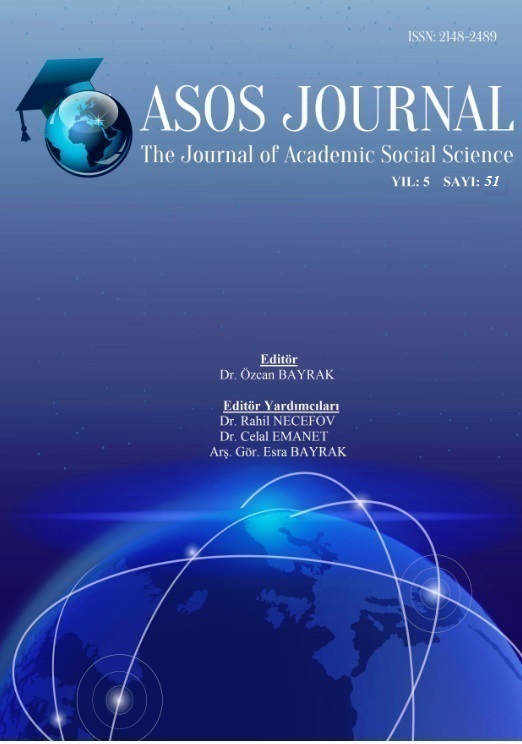ÜNİVERSİTE ÖĞRENCİLERİNDE ORTOREKSİYA GÖRÜLME DURUMU VE SAĞLIKLI YAŞAM BİÇİMİ DAVRANIŞLARI İLE İLİŞKİSİ
Author :
Abstract
Bu çalışmada üniversite öğrencilerinde ortoreksiya nevroza görülme durumu ve bunun Sağlıklı Yaşam Biçimi Davranışları Ölçeği (SYBD-II) ile ilişkisinin incelenmesi amaçlanmıştır. Çalışma Ankara Üniversitesi Sağlık Bilimleri Fakültesi’nde okuyan 183 kız öğrenci üzerinde yapılmıştır. Öğrencilere anket yoluyla ORTO-11 ölçeği ve SYBD-II ölçeği uygulanmış ayrıca öğrencilerin bazı antropometrik ölçümleri alınmıştır. Çalışmanın sonucunda öğrencilerin ortorektik eğilimi arttıkça SYBD-II toplam puanında ve manevi gelişim, kişilerarası ilişkiler, beslenme, fiziksel aktivite, sağlık sorumluluğu ve stres yönetimi alt ölçek puanlarında anlamlı azalma olduğu görülmüştür (p<0.05). Ancak ORTO-11 puanları ile yaş ve Beden Kütle İndeksi (BKİ) değerleri arasında anlamlı ilişki bulunamamıştır. Yeme bozukluğu olarak ele alınan ortoreksiya nevroza öğrencilerde her türlü sağlıklı yaşam biçimi davranışını olumsuz yönde etkilemektedir.
Keywords
Abstract
In this study, it was aimed to investigate the presence of orthorexia nervosa in university students and relationship with the Healthy Lifestyle Behaviors Scale ( HLBS-II). The study was carried out on 183 female students in the Faculty of Health Sciences of Ankara University. ORTO-11 scale and HLBS-II were applied to the students through questionnaires and some anthropometric measurements of the students were taken. As a result of the study, as the orthorexic tendency of the students increased, there was a significant decrease in total score of healthy lifestyle behavior and in the personal development, health responsibility, exercise, nutrition, interpersonal support, stress management subscale scores (p<0.05). However, there was no significant relationship between ORTO-11 scores and age and Body Mass Index (BMI) values. Orthorexia nervosa which considered as an eating disorder negatively affects all kinds of healthy lifestyle behaviors.





